International Childhood Cancer Day
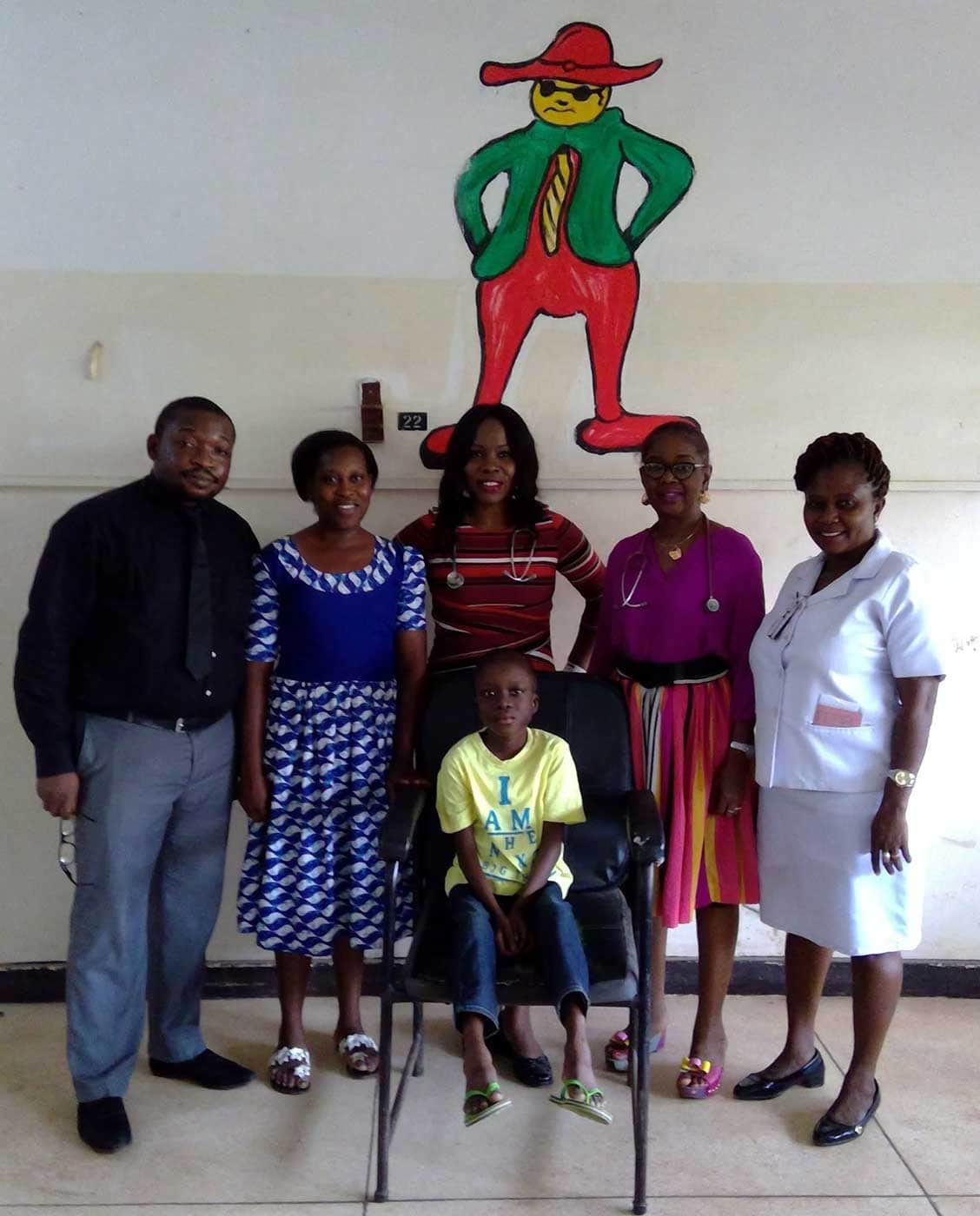
In the United States, cancer is the number one disease killer of children. Yet pediatric cancer isn’t exclusive to America; it’s a global epidemic that affects more than 300,000 children around the world. The Rally Foundation funds important cancer research being conducted not only stateside, but in countries like Nigeria where the level of healthcare contrasts starkly with that of western nations.
In honor of International Childhood Cancer Day, we wanted to highlight the Rally-funded research of Dr. Tonia Onyeka and her team while providing a glimpse of what it’s like when a child is diagnosed with cancer in Nigeria.
In Nigeria, treatment for children with cancer starts in the home, often before an official diagnosis is made. Parents frequently take it upon themselves to find a solution to the illness, seeking out herbal homes, witch doctors, prayer houses, or any combination of the three. By the time they arrive at the hospital, the children are very sick with metastatic disease and parents’ funds have been significantly depleted. After a definitive diagnosis is made and by the time the pediatric oncologists commence treatment, the combination of the progressing illness, chemotherapy and other treatment options may cause deterioration of the child’s clinical state. Because parents (mostly low-income earners) have to pay out-of-pocket, they struggle to provide chemotherapy agents, get basic tests done, and often default from treatment due to costs and other burdens—situations that clinicians find very frustrating as these impede progress with treatment.
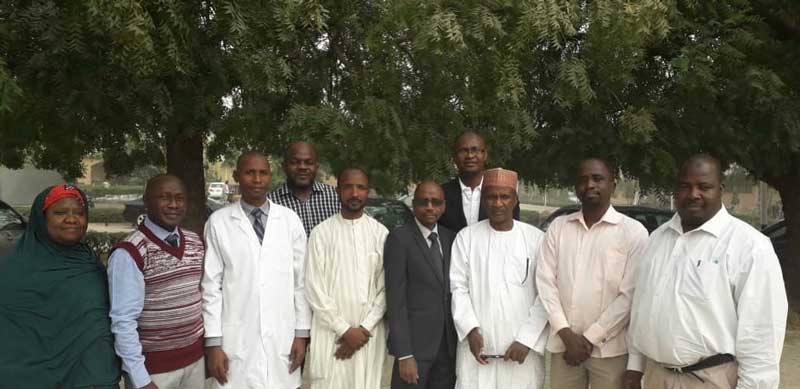
Dr Datti Mohammed is the Lead. He is fourth from the right, in a black suit with black tie and dark sunglassses. Next to him is a paediatrician in native Northern Nigerian traditional attire and behind him is a taller member of the team in a suit.
Further complicating matters is the lack of treatment centers in the country. Nigeria only has nine comprehensive cancer treatment centers, with cancer care available only at tertiary, or specialized health institutions and just 44 pediatric oncologists in the entire country. This leaves the bulk of affected children to be seen by general practitioners and other non-specialists. The burden of treatment is exclusively on the parents, with families spending an average of two million Naira (about $5,000) from diagnosis to treatment, which is financially arduous considering that many Nigerians live on less than a dollar a day. Chemotherapy agents, where available, are very expensive and specific blood products such as platelet concentrate are difficult to get and expensive as well.
Needless to say, cancer treatment significantly drains the resources of families, as many are of the low socio-economic class. Some families have to sell land and other properties to be able to afford to pay for chemotherapy drug treatment for their child. Additionally, cancer treatment and hospitalization cause separation of families. Typically the fathers are the breadwinners and the mothers take care of the children and home. Mothers will leave behind newborn babies with their own mothers and siblings or a distant relative in order to care for their hospitalized child. Finally, caregivers with hospitalized children suffer a myriad of issues ranging from insomnia, anxiety, and depression to fatigue and the emotions of grief and loss associated with impending death.
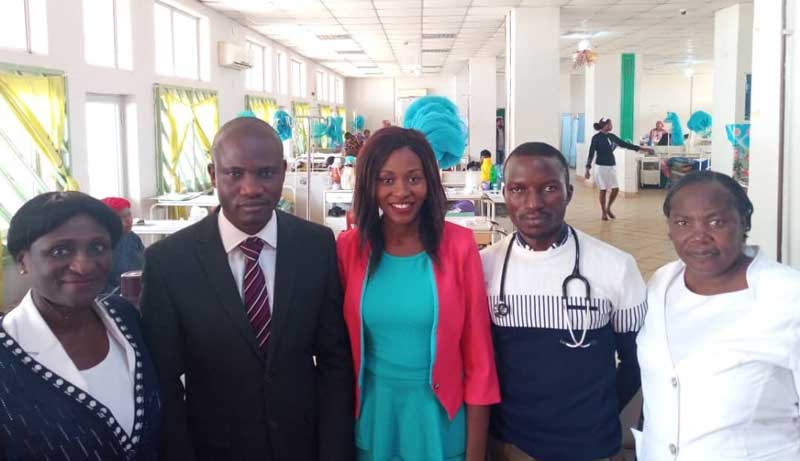
Dr Olugbenga Ofakurin is the Lead. He is in the black suit and purplish tie, in-between two ladies
Aside from the financial and emotional burdens placed on caregivers, there are many other challenges that families face when caring for children with cancer. Home care conditions are often unsuitable and unable to support hospital-to-home transition in the event of a discharge from hospital. A number of parents have low-level literacy which may preclude effective decision-making at critical times during the child’s illness. In addition, the stigma and fear of cancer as well as the myths and misconceptions surrounding the disease are prevalent in communities where the child resides. Many families lack basic amenities such as pipe-borne water, electricity, and a good network of roads to be able to return for scheduled follow-up visits or chemotherapy sessions.
All this (and more) drove Dr. Tonia Onyeka to research solutions on how to ease this incredible burden that caregivers face. The RESCUE Study was first conceived when she noticed the gaping need to get family carers in hospitals with their sick child and to be active participants in the clinical care of the patients. “I noticed that parents and other carers seemed lost, hopeless and besieged by several personal problems and felt that these may impact on the attention and quality of care they gave the patient,” she explained.
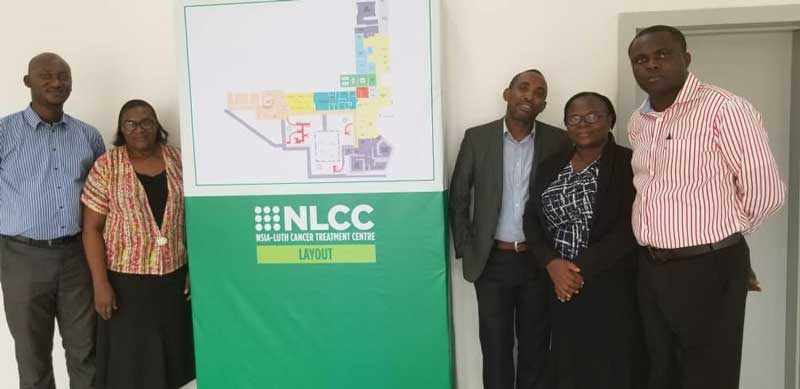
Dr Akinwunmi Alabi is Lead. She is wearing a black suit and standing in-between the two male doctors
The RESCUE Study is a pre-post intervention that proposes to determine if a psycho-educational intervention tailored to informal pediatric cancer caregiver needs will produce reduction in caregiver burden and improve the quality of life of the carers. Conducted in four sites representing four of the six geopolitical zones of Nigeria, this intervention consists of education on patients’ condition and simple care of patient, spiritual care (prayer and meditation), self-care (health promotion, massage, exercise) and support group strategies. Results of the intervention are expected to lead to the production of an educational booklet on childhood cancer for informal carers, families and people living with children who have cancer.
Dr. Onyeka hopes that this research will provide some periods of respite during the hospitalization period for informal carers. This respite will potentially aid in the reduction of caregiver burden and thus improve the quality of life of the informal carer. It will empower carers with requisite knowledge to continue care of the patient beyond the hospitalization phase. “It is also our belief that it will contribute significantly to the sound evidence-base needed for the development of effective informal pediatric family carer support system in Africa,” Dr. Onyeka notes. In addition, educating mothers about how to care for their sick child will ultimately bring value to the patients themselves.
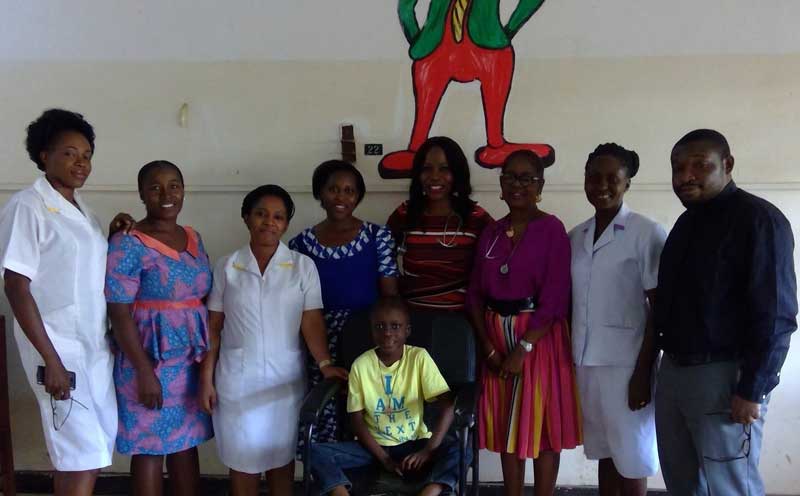
I am fourth from the right; with the cartoon character above my head, behind Samuel one of our patients and next to his mum, with the grey stethoscope round my neck, next to a bespectacled paediatrician, Prof. Ifeoma Emodi, with the red stethoscope round her neck.
Throughout her journey, Dr. Tonia Onyeka encountered many children and families that left a lasting impact. One such case was the story of a seven-year old twin girl (with a healthy twin brother) who was admitted and being managed by the pediatric oncologist team for acute lymphoblastic leukemia and referred to them for palliative care. “She had been on several admissions and on each occasion both her father and mother left their businesses for significant periods of time to be in hospital with her,” recounts Dr. Onyeka. “It was a stressful time physically, emotionally and otherwise for the parents added to the fact that the father had to constantly travel back home to check on the other kids. So the risk of traveling long distances by road, added to the stress of the hospitalization and no breaks to rest from it all, was an eye opener for me. It is real-life scenarios like this that has spurred the interest of my team and I to conduct this research.”
Childhood cancer research and the projects like the RESCUE Study are made possible through funding. “The impact of the Rally Foundation funding this research, especially being that it’s conducted in a multi-ethnic, multi-religious society like Nigeria, has tremendously positive and far-reaching implications for children with cancer, their families, the Nigerian society and African pediatric cancer research as a whole,” says Dr. Onyeka. “This funding has enabled us to bring into perspective this diversity as we study these family carers. In addition, the results produced from this research will help unify opinions and knowledge of family carers on childhood cancer irrespective of what part of the country they live in.”
“It’s important that we raise awareness and funding all around the world on International Childhood Cancer Day because there are still a lot of misconceptions, myths, fears and stigma existing about the disease, especially in our part of the continent,” Dr. Onyeka explains. “Funding of childhood cancer research has the ability to produce groundbreaking studies, thus giving hope to the realization of a cure for many childhood cancers.”
